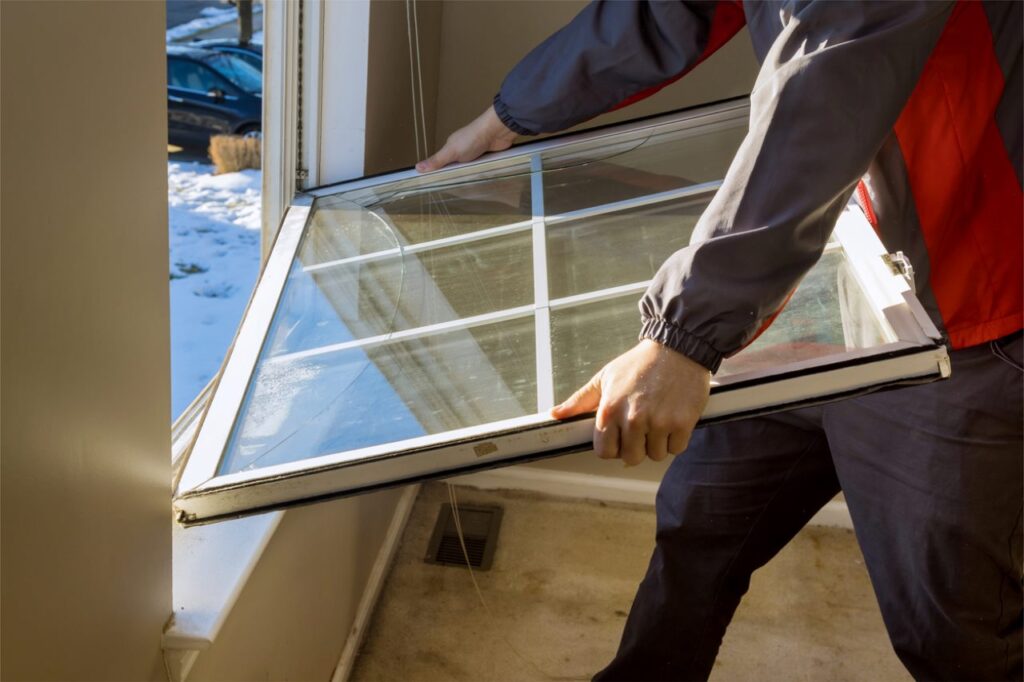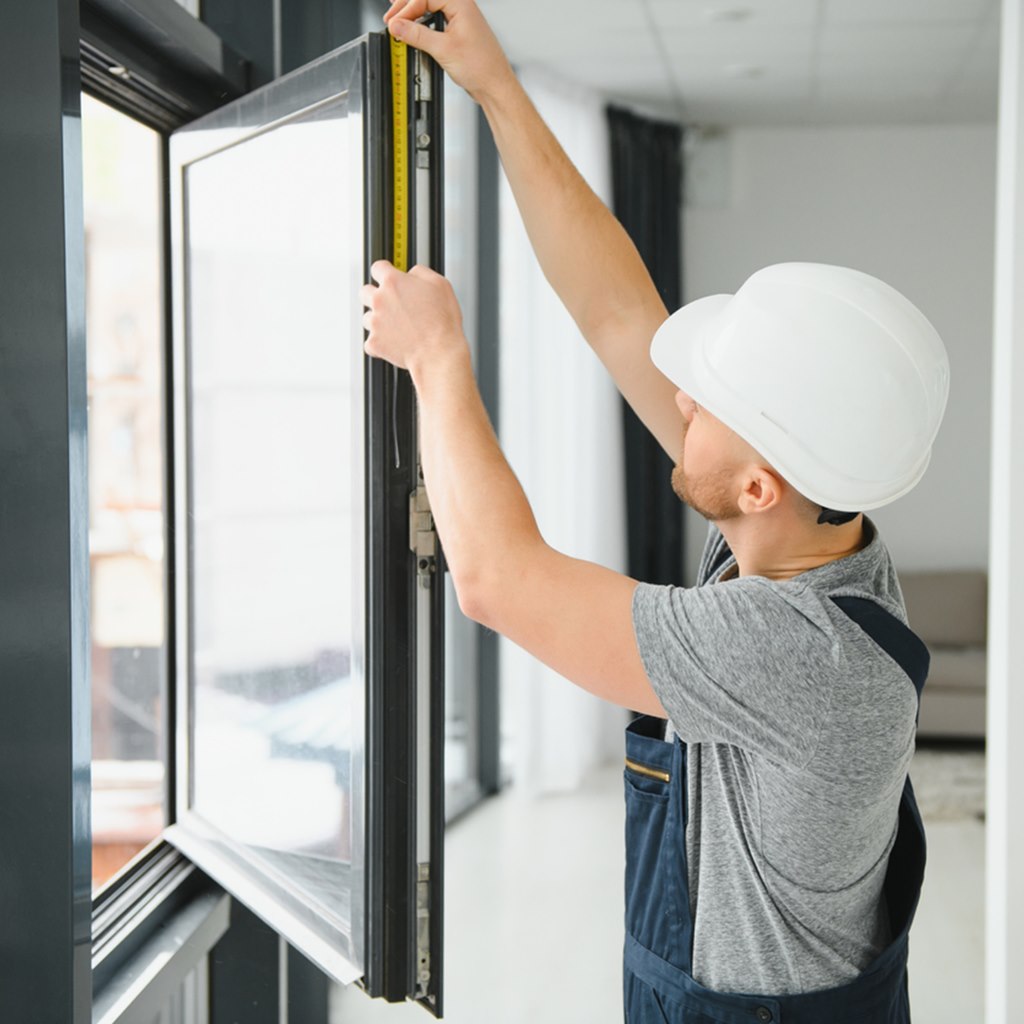If you’re considering a window replacement for your home, understanding the factors that influence the cost of the replacement can help you plan your budget accordingly, without any nasty surprises at the end of the project! In this guide, we're going to explore some key elements that affect the cost of window replacement, along with tips for cost savings and the long-term investment perspective. Let’s dive in!
Factors Influencing Window Replacement Costs
So, how much does it cost for a window replacement? Given that every home is different, there’s no one-size-fits-all price, so we can’t give an exact quote. That being said, while we can’t provide exact figures, here are some of the key factors involved:
Window Material
First of all, the type of material you choose for your new windows can have a substantial impact on the cost: common materials include vinyl, wood, aluminum, and fiberglass, and each comes with its own price range.
Window Style
Next, the style or design of the window you select can also affect the cost. Common styles include single-hung, double-hung, casement, sliding, and bay windows, among others, and these tend to be on the more affordable side; more intricate or customized designs, however, may cost more.
Window Size
As you can imagine, larger windows generally require more material and labor, which can result in higher costs. Size in this context includes both the size of the window opening and the number of windows being replaced, each of which will influence the overall expense.
Energy Efficiency
Opting for energy-efficient windows may initially cost more but can lead to long-term savings on energy bills; energy-efficient windows are designed to minimize heat loss or gain, which can be a valuable investment when it comes to saving on utilities.
Installation Complexity
Another point to bear in mind is your home itself, and the ease with which laborers can install the window replacement; the complexity of the installation process can impact costs, with factors such as the condition of the existing window frame, accessibility, and any necessary structural modifications potentially affecting labor expenses.
Location
Another relevant factor is your geographical location; where you live can play a role in window replacement costs as local labor rates, material availability, and climate considerations can vary, meaning equally more varied pricing.
Additional Features
Finally, if you choose to opt for certain upgrades or additional features, such as Low-E coatings, gas fills, or decorative elements, this can add to the overall cost.
Tips for Cost Savings

While window replacement is an investment in your home's comfort and efficiency, there are ways to manage costs effectively:
- Prioritize Efficiency: While energy-efficient windows may have a higher initial cost, they can lead to significant long-term savings on heating and cooling bills. Consider them as an investment in energy efficiency, and a way to lower your monthly costs in the long-run.
- Multiple Window Replacement: Replacing multiple windows at once can often be more cost-effective than doing them individually, so you should discuss this option with your contractor.
- Quality Over Quantity: alternatively - and if you’re working on a budget - instead of replacing all your windows, focus on key areas that need it the most. High-quality replacements in critical areas can provide substantial benefits while saving you cash.
- Research and Compare: Always shop around before committing to a contractor; obtain multiple quotes from reputable window replacement companies and compare them, ensuring that each quote includes a breakdown of materials, labor, and any additional costs.
Cost Analysis for Different Window Types
The cost of window replacement can vary significantly depending on the type of window you choose:
Vinyl Windows
At Rise Renovation, we believe that vinyl windows are often the most cost-effective option; they offer durability and energy efficiency at a relatively lower price point.
Wood Windows
Wood windows provide a classic and elegant look but can be more expensive due to the material's cost and maintenance requirements.
Aluminum Windows
Aluminum windows are durable and low maintenance, making them a cost-effective choice, especially for commercial buildings.
Fiberglass Windows
Fiberglass windows offer strength and energy efficiency, falling somewhere between vinyl and wood in terms of cost.
Long-Term Investment Perspectives
It's important to view window replacement as a long-term investment in your home's comfort, energy efficiency, and aesthetics. While the upfront costs may vary, consider the potential benefits:
- Energy Savings: Energy-efficient windows can lead to lower heating and cooling costs over time.
- Enhanced Curb Appeal: New windows can improve your home's appearance and potentially increase its resale value.
- Comfort and Security: Upgraded windows can enhance indoor comfort and provide better security.
- Reduced Maintenance: High-quality windows often require less maintenance, saving you time and effort in the long-run.
FAQs
What should I consider when choosing the type of window for my home?
When selecting the right type of window for your home, consider factors such as your aesthetic preferences, energy efficiency goals, maintenance requirements, and budget. Different window materials, styles, and features offer various benefits. Consulting with a window replacement expert can help you make an informed decision that aligns with your specific needs and preferences.
How long does the window replacement process typically take?
The duration of a window replacement project can vary based on factors like the number of windows, their size, and the complexity of the installation. On average, a single window replacement can take a few hours to complete. Replacing multiple windows throughout your home may take several days. It's best to discuss the estimated timeline with one of our professionals during the consultation.
